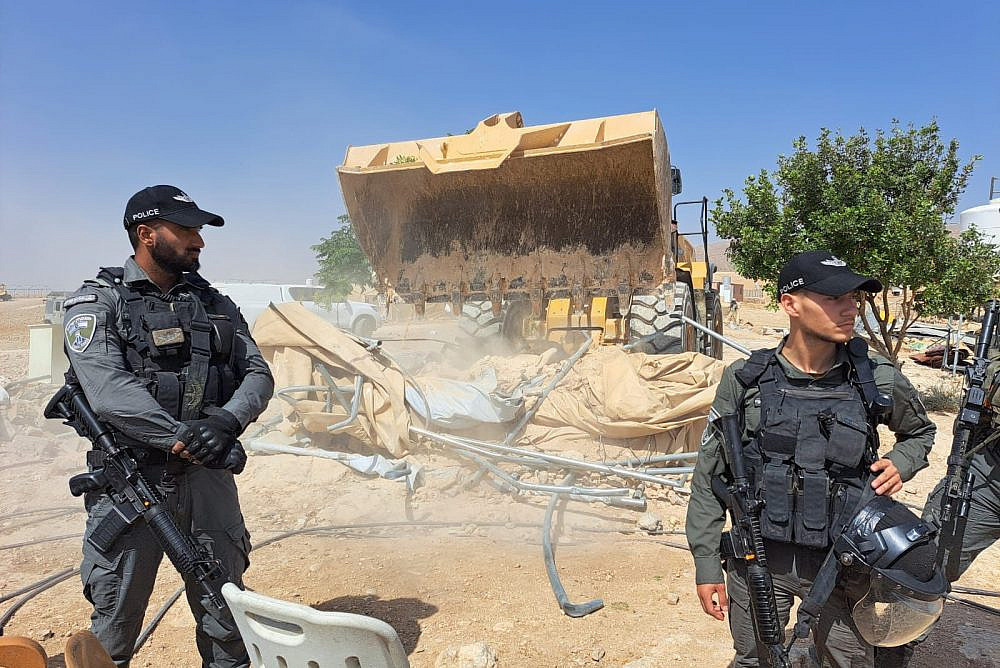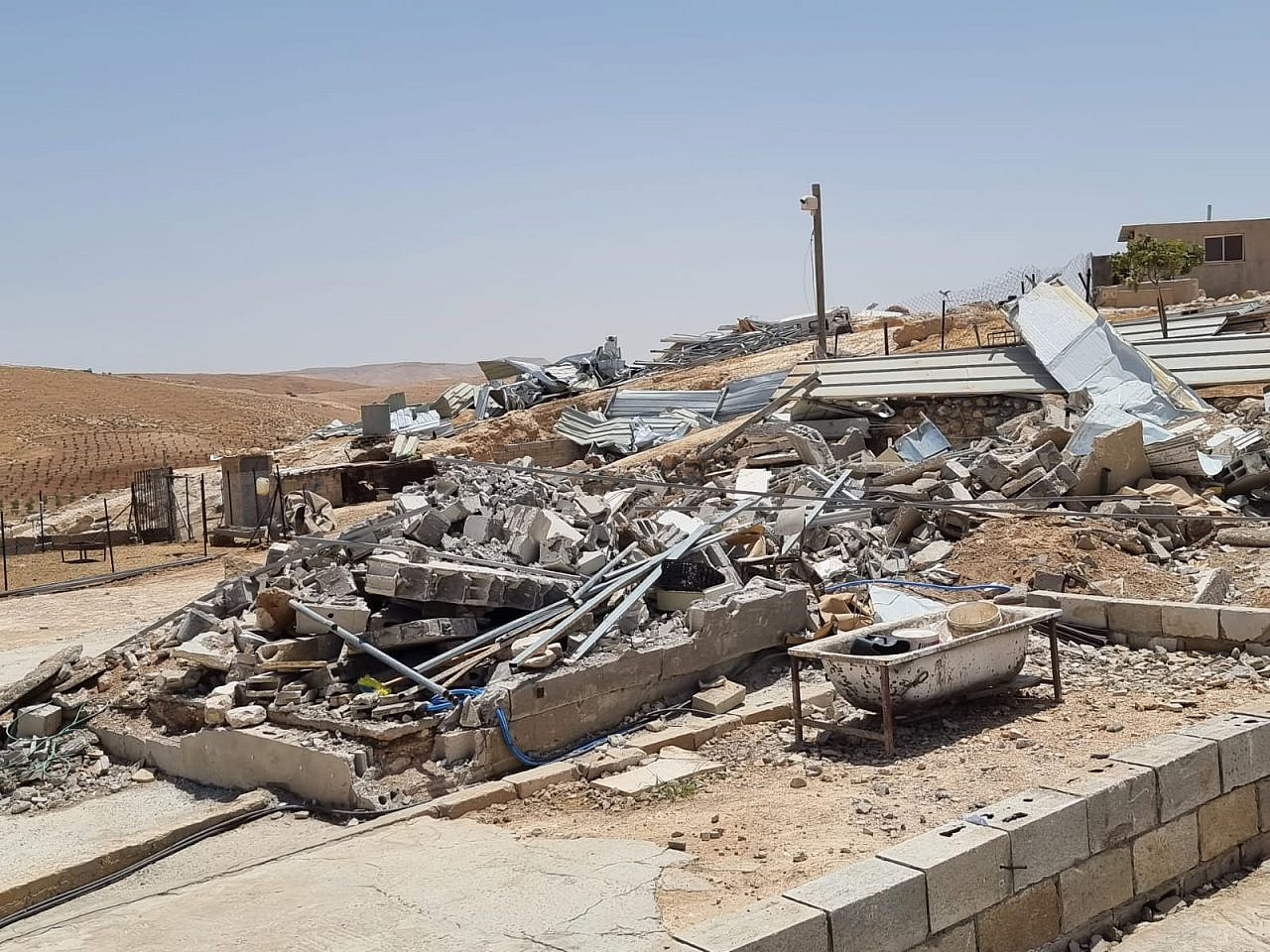Palestinians in Masafer Yatta made homeless twice over by Israeli demolitions
The Israeli military bulldozed tents housing 21 Palestinians on Wednesday morning, whose original homes had already been destroyed last month.

On Wednesday morning, the Israeli military carried out another round of demolitions in Masafer Yatta in the occupied West Bank, in a continuing escalation of Israel’s efforts to forcibly expel the area’s Palestinian residents. The military bulldozed tents that had been home to 21 residents of al-Markaz and Fakheit, two villages in the area.
The demolitions, which targeted families whose homes had already been destroyed in May and who had set up the tents in order to have somewhere to sleep, came in the wake of a High Court ruling last month that paved the way for Israel to proceed with a long-postponed expulsion on the grounds that Masafer Yatta sits within an army firing zone. The military’s previous demolition operation in the area destroyed the homes of 45 residents.
“The aim is to send us into despair,” said Muhammad al-Najjar, a resident of al-Markaz. “They came straight away to carry out demolitions against everyone whose homes they’d already destroyed.” After carrying out a demolition, the Civil Administration — the arm of Israel’s military government that governs the 2.8 million Palestinians in the occupied West Bank — can return to demolish buildings in the same spot without the need for a demolition order or legal proceedings.
The current wave of demolitions comes in the wake of the High Court’s ruling last month that allowed the army to proceed with the expulsion of thousands of Palestinians in the Masafer Yatta region of the West Bank, on the grounds that the area is located within an army firing zone. The demolitions came just one day after dozens of Democratic senators and congresspeople in the United States signed a letter calling on President Joe Biden to stop the expulsions.
“The army flew drones over us the day before yesterday — I was afraid they were coming,” said Safa al-Najjar. She, her children, and her grandchildren all lived in a tent that the army had destroyed, after having demolished their home earlier in May. On Wednesday morning, once al-Najjar realized that the military was conducting demolitions in nearby Fakheit, she told her children to quickly dismantle their tent and hide it in a cave. That made little difference.
“The soldiers came and searched for the tent,” al-Najjar explained. “They went into the cave, took the tent, and put it in front of the bulldozer, which drove over it until it was destroyed.” The soldiers crumpled the tents and covered them in sand and rocks, so that they would be unusable.
The military tried to prevent journalists from documenting the demolitions, claiming that they were in a firing zone and that entry was forbidden. An army officer at the scene threatened to forcibly arrest +972’s Basil al-Adraa (who co-authored this report) if he did not leave the area, despite the fact that he had identified himself as a journalist and presented his press card.
Soldiers also tried to bar journalists from entering the area by car, again on the grounds that it was forbidden for them to enter a firing zone. Since the High Court’s ruling, residents have reported increasing restrictions on vehicles entering the area.
Both al-Markaz and Fakheit look like a warzone. Only a few houses remain of the hamlet, and most of the village is in ruins. The scene in Fakheit is the same: the majority of its homes have been demolished, with only the elementary school in the center of the village still standing. Its students were in class when the bulldozers arrived on Wednesday; their playground is now surrounded by rubble.
Some of the families who have been left homeless by the demolitions will be sleeping in caves on Wednesday night. But the conditions inside the caves — which are ancient and can be found in every village in Masafer Yatta — have deteriorated significantly over time.
“It’s like going to sleep inside a tomb,” said Muhammad al-Najjar. He and his three young children expect to spend Wednesday night in the cave as well, until they manage to gather enough funds for another tent. His mother, who is approaching 70, said that she is “frightened of the cave” and will sleep outdoors instead. Her grandchildren, after coming back from school, discovered that they no longer had a home, and dragged their bed out from the ruins of the tent.
Yuval Abraham is a journalist and activist based in Jerusalem.
https://www.972mag.com/israel-military-demolitions-masafer-yatta/







Geen opmerkingen:
Een reactie posten